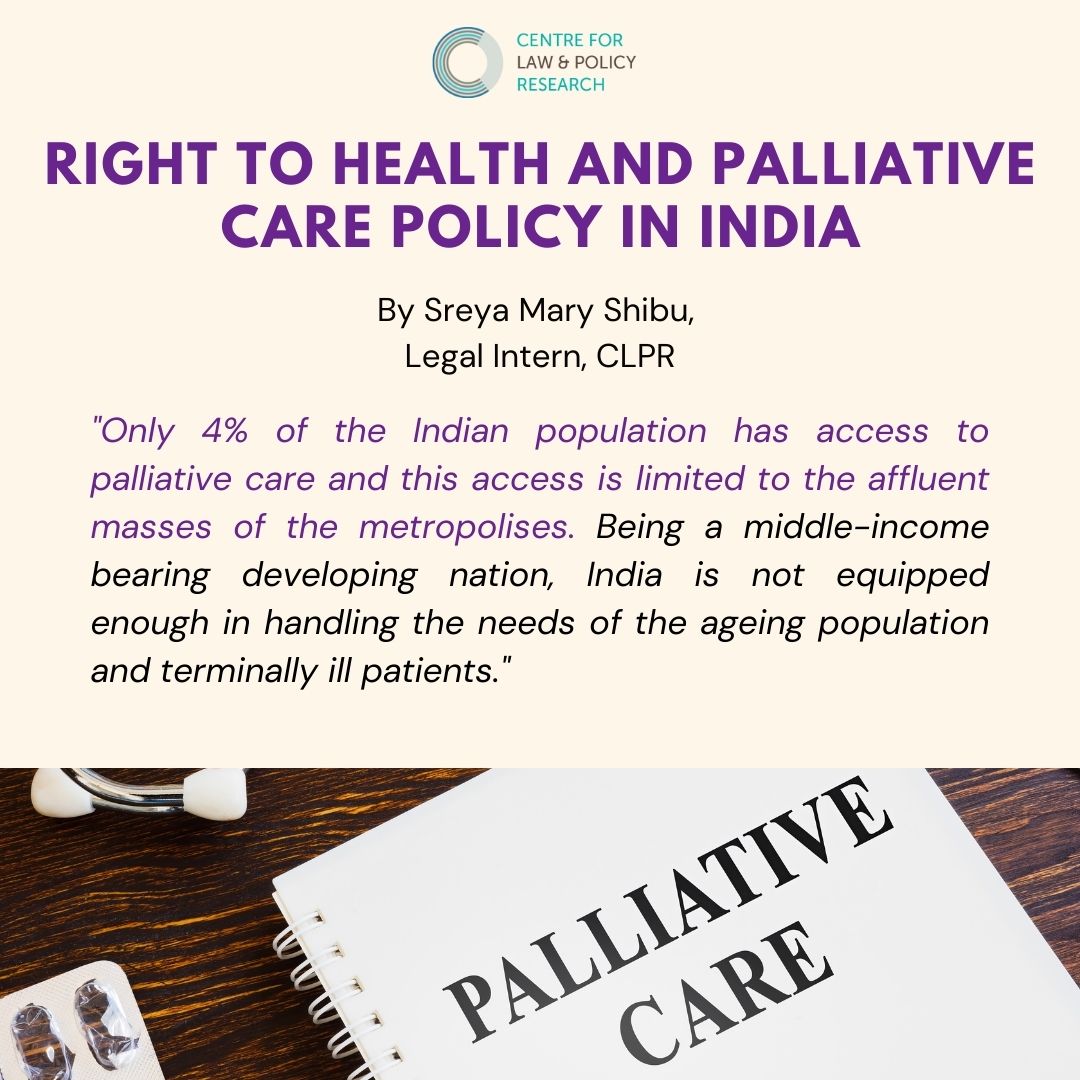Palliative care refers to an interdisciplinary approach extended to terminally ill patients which combines medicine, well-being, and community service aimed at improving the quality of lives of patients as well as their caretakers. Its primary focus is on the patient’s wellbeing and empowerment of families through education and awareness of the available treatments. Palliative care must not be perceived as end-of-life care since it is given to the patient alongside curative treatment and does not portray the culmination of life.
Palliative care is explicitly recognized by the World Health Organization under the human right to health and it is required that it should be provided through person-centered and integrated health services that pay special attention to the specific needs and preferences of individuals. Only 4% of the Indian population has access to palliative care and this access is limited to the affluent masses of the metropolises. Being a middle-income bearing developing nation, India is not equipped enough in handling the needs of the ageing population and terminally ill patients. The only answer to providing them with the right to a dignified life and quality of death is palliative care.

In India, the process of integrating palliative care into our national health care policy has been very slow. The Ministry of Health & Family Welfare, Government of India constituted an expert group on Palliative care which submitted its report ‘Proposal of Strategies for Palliative Care in India’ in November, 2012 and on the basis of this report a National Palliative Care Programme was formulated under the National Health Mission. However, no separate budget is allocated for the implementation of the National Palliative Care Program. This was recognized to be included in the five year plan under ‘Mission Flexipool’ for the financial year 2012-2013 but failed to materialise due to lack of budget allocation. Recently, palliative care has been proposed to be included under the AYUSH Scheme under the National Association of Palliative Care for AYUSH & Integrative Medicine (NAPCAIM) with the objectives of integrating palliative care into AYUSH streams of medicine and increasing accessibility to remote villages through education and awareness.
Organisations like Pallium India and Indian Association of Palliative Care currently play a vital role in spreading awareness and undertaking community service in extending palliative care to the needy.
The Southern States of Kerala, Karnataka and Maharashtra have shown an upper hand when it comes to implementing palliative care policy. The State of Kerala still remains to be the only State to have integrated palliative care into their health schemes. The Kerala Model of Palliative Care Policy is a successful model which now gives palliative care access to 60% of the State’s population compared to the global average of 14%. This has been made possible by an experiment that evolved over three decades, namely ‘The Calicut Experiment’ which was initiated by Dr. M. R. Rajagopal. It makes use of existing hospital facilities, awareness programs and extensive volunteerism in order to make possible the access to palliative care at a minimal cost to patients irrespective of their income.
Therefore, palliative care in India has not yet been systematically incorporated into our healthcare system. It is not the subject of any national study or research and there is a shortage of professionals who have received adequate training and education for the same. The inclusion of “Palliative Care” in the undergraduate curriculum of Nursing syllabus and several proposals to include it in National Health Policies are in fact promising but, it is quintessential that the Government recognizes the need for a national policy that gives palliative care the significance it requires.
This blog is written by our intern Sreya Mary Shibu, a 1st year law student at Government Law College, Ernakulam.
